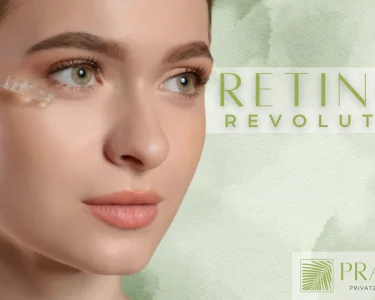Oily skin is often associated with youthfulness and a decreased likelihood of developing visible signs of aging, such as fine lines and wrinkles. However, the relationship between oily skin and aging is more complex, and scientific research provides valuable insights into this topic. Here’s what science tells us about oily skin and aging:
1. Delayed Wrinkle Formation: Research suggests that individuals with oily skin tend to develop wrinkles and fine lines at a slower rate compared to those with dry or normal skin. The excess sebum production in oily skin may provide some natural lubrication and hydration, which can help prevent the formation of early wrinkles.
2. Increased Skin Elasticity: Oily skin tends to have higher levels of skin elasticity, which refers to the skin’s ability to bounce back after being stretched or compressed. This elasticity can contribute to a more youthful appearance and reduce the visibility of wrinkles.
3. Higher Collagen Levels: Studies have found that individuals with oily skin may have higher levels of collagen, a protein that provides structural support to the skin. Collagen plays a crucial role in maintaining skin firmness and elasticity, and higher levels of collagen can help delay the onset of visible signs of aging.
4. Slower Skin Aging Process: Oily skin has been associated with a slower natural aging process, as evidenced by a decreased occurrence of age spots and skin thinning. However, it’s important to note that everyone’s skin ages differently, and individual genetics, lifestyle factors, and skincare practices also play significant roles in the aging process.
5. Prolonged Acne-Related Concerns: Oily skin is more prone to developing acne and breakouts. While acne is typically associated with younger individuals, persistent or severe acne can contribute to long-term skin concerns and potentially lead to post-inflammatory hyperpigmentation or scarring.
6. Balancing Act: While oily skin may have some protective benefits against certain signs of aging, it’s crucial to maintain a balanced skincare routine. Proper cleansing, exfoliation, and moisturization are essential for oily skin to manage sebum production, prevent clogged pores, and maintain overall skin health.
7. Sun Protection: Regardless of skin type, sun protection is crucial for preventing premature aging. Prolonged exposure to UV radiation can accelerate the aging process, leading to wrinkles, sunspots, and other signs of photodamage. Therefore, it’s important for individuals with oily skin to use broad-spectrum sunscreen and practice sun-safe habits.
It’s worth noting that the impact of oily skin on aging is not a guarantee of complete protection against visible signs of aging. While oily skin may have some inherent advantages, other factors such as genetics, lifestyle choices, environmental factors, and skincare habits also contribute to the aging process. Therefore, adopting a comprehensive skincare routine, maintaining a healthy lifestyle, and seeking professional advice from a dermatologist are important steps in managing and addressing aging concerns, regardless of skin type.




